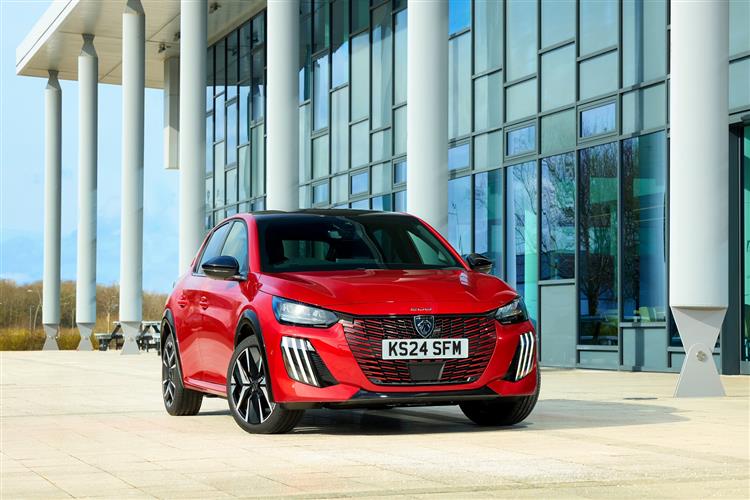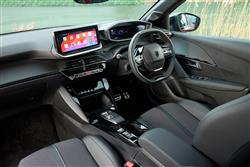TWO'S COMPANY (some text hidden) --NONE--
By Jonathan Crouch
Peugeot adds full Hybrid power to its 208 supermini to create an appealing combination. Jonathan Crouch takes a look.
Ten Second Reviewword count: 33
Peugeot's 208 Hybrid e-DSC6 feels the gap between conventionally-engined and full-EV models in the 208 supermini line-up. If you like the 208 but aren't quite ready to go all-electric, it's an appealing compromise.
Backgroundword count: 129
If you're fed up with waiting for the mainstream makers to bring you an affordably priced EV supermini, then you're probably considering a Hybrid alternative. Not long ago, when it came to that, there didn't seem to be much choice - you selected between two Japanese contenders, the Toyota Yaris and Honda Jazz. More recently though, the Stellantis Group has developed a self-charging Hybrid engine enabling two further class options to appear, Hybrid versions of the Vauxhall Corsa and the car we look at here, Peugeot's 208. The 208 has long been the most avant garde-looking supermini. And in this form, it's the sharpest looking Hybrid supermini too - but there's a price to pay for that. Should you be prepared to pay it? Let's take a closer look.
Driving Experienceword count: 231
As with its Vauxhall Corsa counterpart and the Toyota Yaris (but unlike Hybrid versions of the Renault Clio and the Honda Jazz), the Hybrid engine in this 208 is available in two states of tune - 100hp or 136hp. The 48V system is based around the 208's familiar 1.2-litre three cylinder PureTech petrol engine mated to a bespoke 6-speed e-DSC6 dual clutch auto transmission. Bespoke because that gearbox's casing houses the DC inverter, the Engine Control Unit and a little 28hp electric motor powered by a tiny battery secreted beneath the front passenger seat. As you drive, the petrol engine and the electric motor can operate together - or separately. And, unlike with a mild hybrid system like that fitted to say, a Hyundai i20, here the car can be driven for short urban distances (under 18mph) on electric power alone. The motor also assists the engine under acceleration - such as from standstill to 62mph, which takes 9.8s for the 100PS model (nearly a second quicker than the equivalent Hybrid Corsa) or 8.1s for the 136PS version (half a second quicker). Mind you, the base variant's figure is only 0.3s faster than the equivalent un-electrified PureTech 100 derivative. During deceleration, the petrol engine stops and the e-motor acts as a generator to recharge the Hybrid system's 48V battery. The battery also stores the energy recuperated by the regenerative braking system.
To see the full road test text contact us on 0330 0020 227
Pictures (high res disabled)

.jpg)
|
.jpg)
|
.jpg)
| |||
.jpg)
|

|
Statistics (subset of data only)
Min |
Max |
|
Price: |
£22,890.00 (At 26 Apr 2024) |
£29,020.00 (At 26 Apr 2024) |
Insurance group 1-50: |
22 |
29 |
CO2 (g/km): |
96 |
97 |
Max Speed (mph): |
118 |
|
Combined Mpg: |
65.9 |
|
Length (mm): |
4060 |
|
Width (mm): |
1765 |
|
Height (mm): |
1433 |
|
Boot Capacity (l): |
311 |
|
Scoring (subset of scores)
Category: Hybrid, Plug-in, Electric & Hydrogen
| Performance | |
| Handling | |
| Comfort | |
| Space | |
| Styling, Build, Value, Equipment, Depreciation, Handling, Insurance and Total scores are available with our full data feed. | |



